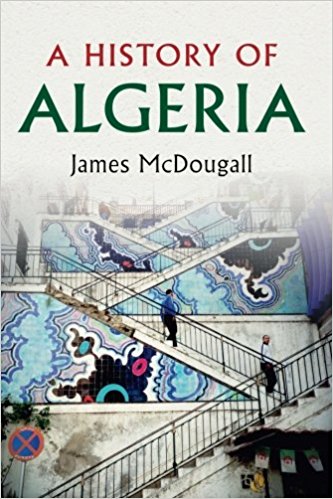
A History of Algeria
Louis Werner
James McDougall
2017, Cambridge UP, 978-0-52161-730-7, $29.99 pb.
The simple, albeit implicitly sweeping, title of this book cries out for a clarifying subtitle. This is not the story of Carthaginian, Roman or caliphal (medieval Muslim) Algeria, but rather a detailed study of the nation that emerged in the wake of its Ottoman period (early 16th into the mid-19th century). After an introductory chapter on Ottoman rule, McDougall examines the development of modern Algeria up to and including the Arab Spring of 2011 by tracing the various political ways in which “Ottoman governors, French colonial settlers and administrators and Algerian nationalist leaders, bureaucrats and generals” all shaped the contemporary state. A second focus is the history of Algerian society and culture, with its cafés, theatrical productions staged “in local Arabic dialect” and performances “rooted in classical Andalusi music.” These are among the “continuous responses, innovations and strategies” of a people whose mid-20th-century struggles for independence “marked a critical moment for the history of an emergent ‘Third World.’”
You may also be interested in...

Novel Reimagines 1001 Nights With a Feminine Take
Jamila Ahmed takes on classic folktales with a newfound feminine perspective in historical fiction novel.
Ancient Egyptians Still Have Things to Teach Us
Socrates and other Greek thinkers admired Egypt for its philosophical tradition. This new translation of a manuscript as old as the pyramids shows us why.
In the Aftermath of Rome's Collapse, These Communities Shaped the Mediterranean
Three regions of the post-Roman Mediterranean, from 400 CE to 1000 CE—the Latin West, Byzantium and the early Islamic world—are the focus of this work.